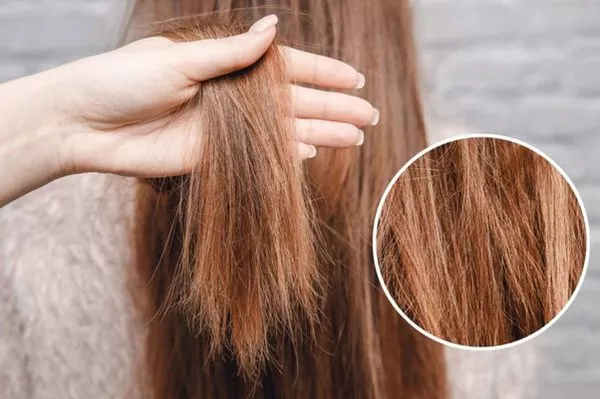Hair loss can be a distressing experience for both men and women, affecting their self-esteem and confidence. One common cause of hair loss is iron deficiency, a condition where the body lacks sufficient iron to carry out vital functions. While iron deficiency can lead to hair thinning and shedding, the good news is that with proper treatment and care, hair growth can be restored. In this article, we will delve into the relationship between iron deficiency and hair loss, explore the mechanisms behind hair growth, and provide insights into how to promote regrowth for luscious, healthy locks.
I. Understanding Iron Deficiency and Its Impact on Hair Loss
Iron is an essential mineral that plays a crucial role in transporting oxygen throughout the body, including the hair follicles. When the body lacks iron, it prioritizes distributing oxygen to essential organs, leaving hair follicles deprived of the necessary nutrients. As a result, the hair growth cycle is disrupted, leading to hair thinning and excessive shedding.
II. The Hair Growth Cycle Unveiled
To understand how hair regrowth is possible after iron deficiency, it is essential to comprehend the hair growth cycle. Hair follicles go through three phases: the anagen (growth) phase, the catagen (transition) phase, and the telogen (resting) phase. During the telogen phase, hair sheds naturally to make way for new hair to grow. However, iron deficiency can prolong the telogen phase and inhibit new hair growth.
III. Treating Iron Deficiency for Hair Restoration
To reverse the effects of hair loss caused by iron deficiency, it is crucial to address the underlying deficiency. Consulting a healthcare professional for a comprehensive diagnosis and appropriate treatment plan is the first step. Iron supplements, along with a balanced diet rich in iron, can help replenish iron levels and stimulate hair regrowth. Additionally, incorporating vitamin C-rich foods in your diet aids iron absorption, enhancing the effectiveness of iron supplementation.
IV. Nurturing Your Hair: Essential Nutrients for Regrowth
While iron is a key component in hair growth, other nutrients are also vital for maintaining healthy hair. Protein, biotin, zinc, and vitamins A and E play essential roles in promoting hair regrowth and preventing further hair loss. Including foods such as eggs, fish, nuts, leafy greens, and whole grains in your diet can provide these essential nutrients and contribute to healthy hair.
V. Adopting a Hair-Friendly Lifestyle
In addition to addressing iron deficiency and consuming a nutrient-rich diet, certain lifestyle changes can support hair regrowth. Stress management techniques, regular exercise, and adequate sleep promote overall well-being, positively impacting hair health. Avoiding excessive heat styling, harsh chemicals, and tight hairstyles minimizes hair damage and breakage. Furthermore, gentle scalp massages can improve blood circulation to the hair follicles, stimulating growth.
VI. Patience and Consistency: The Key to Successful Hair Regrowth
Hair regrowth is a gradual process that requires patience and consistency. It’s important to understand that once iron levels are replenished, it may take several months for visible changes to occur. Consistently following a well-rounded treatment plan and maintaining a healthy lifestyle will yield the best results. Remember, every individual’s hair growth journey is unique, so stay positive and trust the process.
VII. Seeking Professional Advice
While iron deficiency is a common cause of hair loss, it is essential to consult with a healthcare professional for an accurate diagnosis. Other underlying medical conditions or factors, such as hormonal imbalances or genetics, could contribute to hair loss. A healthcare professional can assess your specific situation and provide personalized recommendations for hair restoration.
Conclusion:
Iron deficiency can take a toll on hair health, leading to hair thinning and loss. However, with the right approach, hair growth can be restored even after iron deficiency. By addressing the underlying cause and providing the necessary nutrients, you can revive your locks and regain your confidence.
Remember, treating iron deficiency requires a comprehensive approach. Consult with a healthcare professional to determine the best course of action for your specific situation. They can guide you through the process of replenishing iron levels and restoring hair growth. Incorporating iron-rich foods into your diet, taking iron supplements as prescribed, and enhancing iron absorption with vitamin C are all essential steps.
Additionally, don’t overlook the importance of a well-rounded diet that includes other key nutrients for hair health. Protein, biotin, zinc, and vitamins A and E all play significant roles in supporting hair growth. Ensure that your meals include a variety of nutrient-dense foods to provide your hair follicles with the nourishment they need.
Adopting a hair-friendly lifestyle is equally crucial. Manage stress levels, engage in regular physical activity, and prioritize quality sleep to promote overall well-being, which will have a positive impact on your hair. Avoid excessive heat styling, harsh chemicals, and tight hairstyles that can cause damage and breakage. Instead, opt for gentle hair care practices and consider incorporating scalp massages to stimulate blood circulation to the hair follicles.
It’s important to remain patient and consistent throughout your hair regrowth journey. Understand that it takes time for visible changes to occur, as the hair growth cycle is a gradual process. By diligently following your treatment plan, maintaining a healthy lifestyle, and trusting the process, you’ll increase your chances of successful hair regrowth.
While iron deficiency is a common cause of hair loss, it’s essential to remember that other factors may contribute to hair problems. If you’re not seeing the desired results or if you suspect there might be other underlying issues, consult with a healthcare professional for a comprehensive evaluation. They can assess your individual situation, identify any additional factors affecting your hair, and provide personalized recommendations for effective hair restoration.
In conclusion, hair can indeed grow back after iron deficiency. By addressing the underlying cause, replenishing iron levels, and providing essential nutrients, you can stimulate hair regrowth and regain the luscious locks you desire. Remember to be patient, consistent, and seek professional advice when needed. With the right approach and a little time, you’ll soon enjoy a healthy and vibrant head of hair once again.

